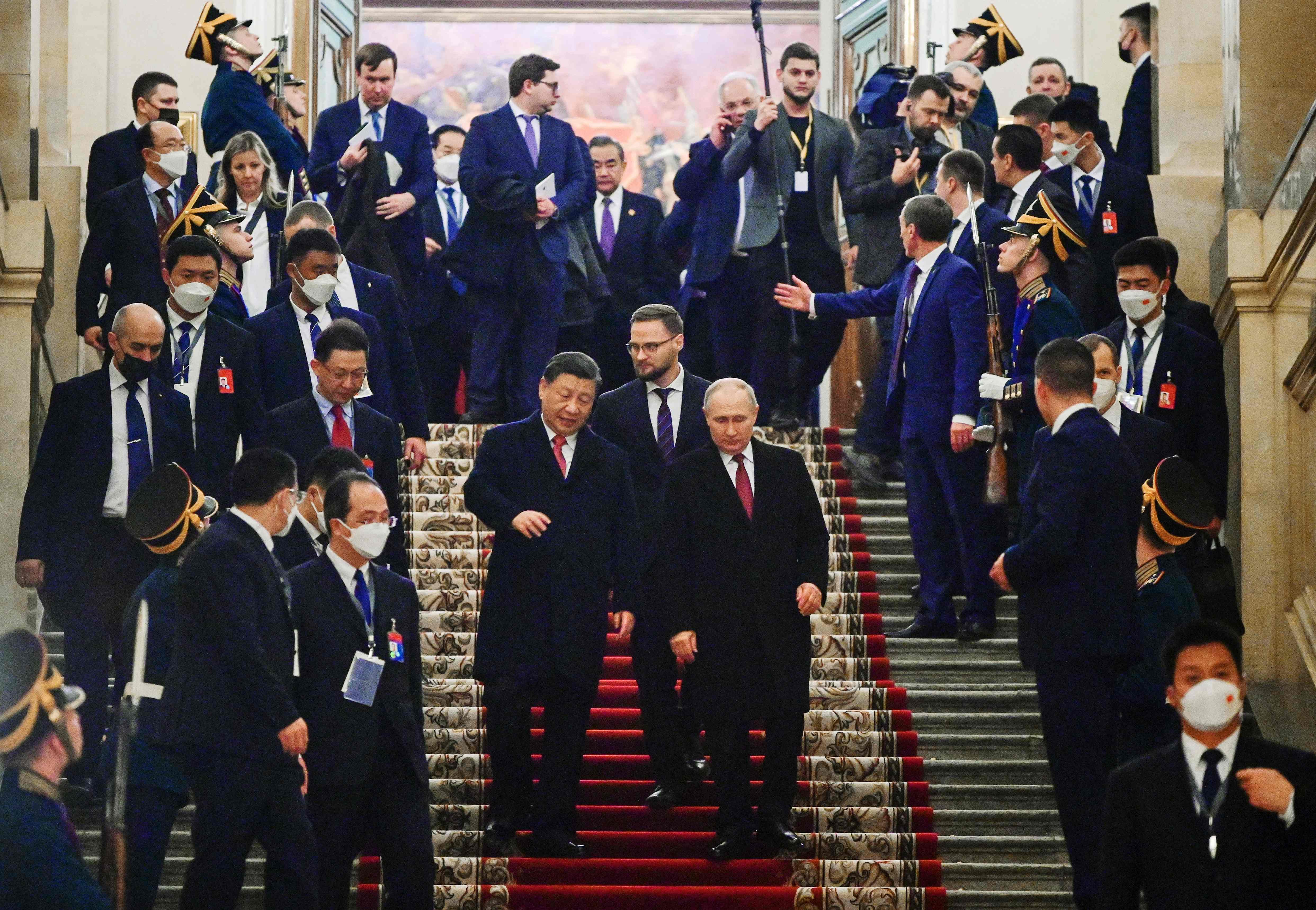Is the world on the precipice of a second cold war?
The rivalry could get out of hand, with dynamics in Washington and Beijing leading the world into a gratuitous confrontation between nuclear powers, writes Borzou Daragahi


In the space of just one week, the influential American news and opinion outlet Foreign Policy published no less than six pieces demanding US and Western policymakers confront China more forcefully on human rights, shipping, finance, climate change, quantum computing, and microchips.
Just in case anyone missed the point, another called on Washington to create an “economic war council” to add a financial component to the military posture against China.
A new cold war is being thrust upon the world – one that could shape lives and nations for decades to come.
But many in the world are ill-prepared and ill-informed about the battle lines taking shape. Already elites across the world are envisioning a 21st century defined by economic, intelligence, diplomatic and perhaps military conflicts between two camps: a US-led set of alliances and partnerships that include Nato and major Asia-Pacific nations, and a Eusrasian-led alliance of China and Russia and their respective partners, including North Korea, Belarus, and Iran.
Latin America, the Middle East and Africa seem keen to remain unaligned, and may turn into battlegrounds between the two camps.
The rivalry could get out of hand, with dynamics in Washington and Beijing leading the world into a gratuitous confrontation between nuclear powers.
Debate is stifled in the autocracies of Eurasia. Chinese media and think tanks recognise the possibility of a long, dangerous period of hostility between the world’s two biggest powers, but almost exclusively blame the US for its actions. A dangerous groupthink has also set in around Washington, with Republicans and Democrats attempting to outdo each other with hawkish positions on China.
But Western voters and citizens have power and a voice, and need to get involved in the discussions. There is also nuance in Europe. Last week both French president Emmanuel Macron and EU Commission president Ursula von der Leyen were in Beijing attempting variously to entice and cajole away from what the West and many Asia-Pacific countries view as problematic behaviours, topped by its diplomatic and material support for Russia’s war against Ukraine.
Predictably, the dovish Macron, accompanied by a massive delegation of corporate titans, was feted by top officials, while the more hawkish Von der Leyen was largely ignored and trashed in state-run media as an American dupe.
China is indeed a problematic nation. It is attempting to export (or at least normalise) its dystopian model of autocratic rule propped up by an extreme surveillance state. It has targeted its own Uyghur and Tibetan minorities with gross human rights violations. It often acts as a global bully with smaller countries. It hypocritically decries Western imperialism even as it backs Vladimir Putin’s war of conquest against Ukraine. It continues to menace Taiwan, an independent nation consistently ranked last year as Asia’s most vigorous democracy.
But US allies and partners regularly practice the same sort of human rights abuses. And the US is among world history’s greatest bullies. Forget its ill-fated invasion of Iraq, which it launched without the approval of the United Nations Security Council. There is also less public menacing of weaker countries, like the trade war it launched against impoverished Rwanda for merely trying to prevent US exporters from dumping used clothes on its textile markets.
China’s premier Xi Jinping is a cold, calculating autocrat, but the 69-year-old is no Sith Lord. His time will pass, and China’s deep civilisation, massive population and markets will endure after him.
The West is now in the process of attempting to dismantle its deep economic dependency on China. That could be a good thing, bringing industrial jobs back to the heartlands of Western nations, and doing away with absurd supply chains in which oil from the Persian Gulf is shipped to plastics factories in China to make fly swatters for Europe. The US should also kick its unhealthy addiction to Asian debt – it owes $1.85 trillion in China and Japan.
But the US and the West are also in danger of falling into some bad old habits. In the US there is rising bigotry toward Chinese and Chinese Americans. Even as the West decries abuses against dissidents and Uyghurs, there is increasing talk among elites of partnering with and excusing the abuses of authoritarian states in the Asia-Pacific in an effort to contain China – just as the West backed militaristic right-wing dictatorships in Latin America and Asia in the name of rolling back Soviet influence during the original Cold War.
There are good reasons to launch vigorous debates in Western societies on whether China is a troubling partner like Turkey; a worthy rival like the West imagined it until a decade ago; an “existential” threat, as one American Republican congressman warned; or a threat to “universal values”, as US secretary of state Antony Blinken described it.
But the worst outcome would be to lazily slide into a de facto global war promoted by the same Washington foreign policy fixtures that brought about the disastrous wars in Vietnam, Iraq, and the global war on terror.





Join our commenting forum
Join thought-provoking conversations, follow other Independent readers and see their replies
Comments